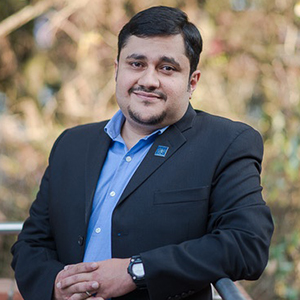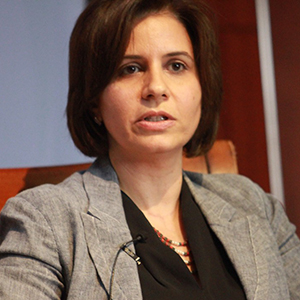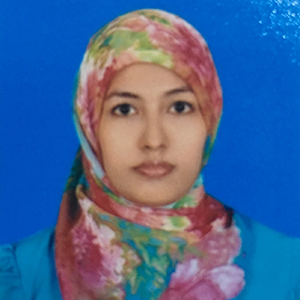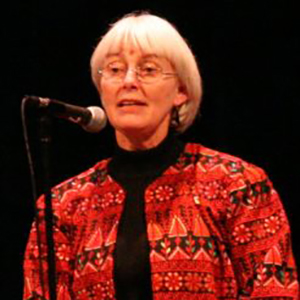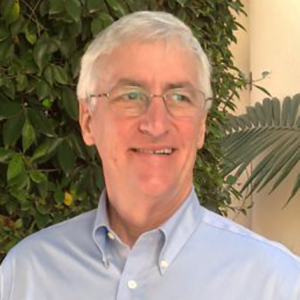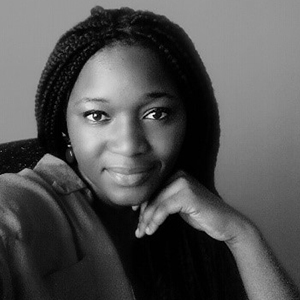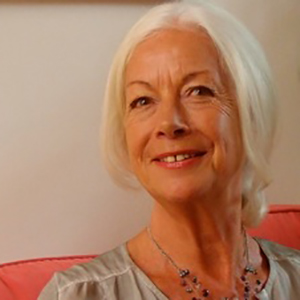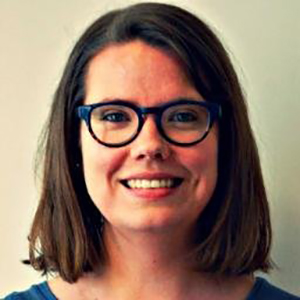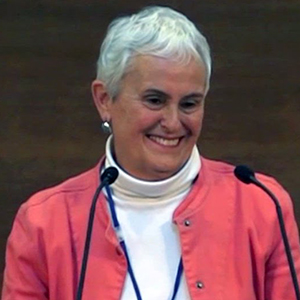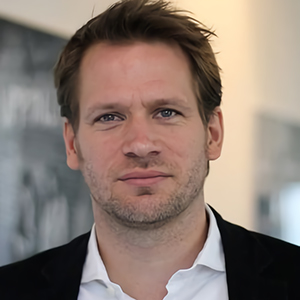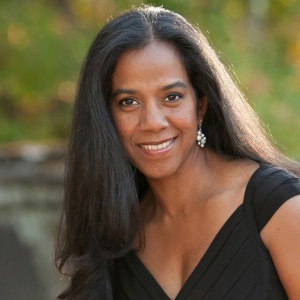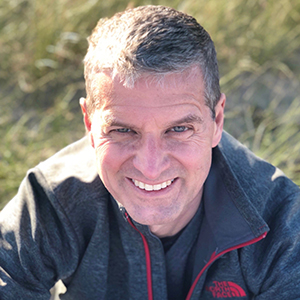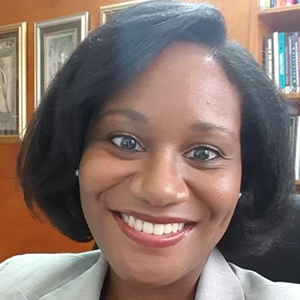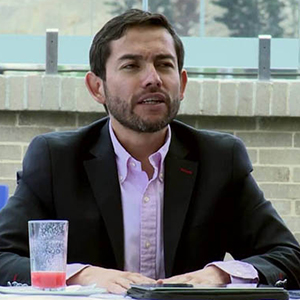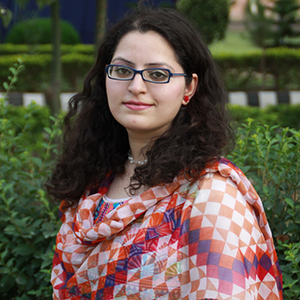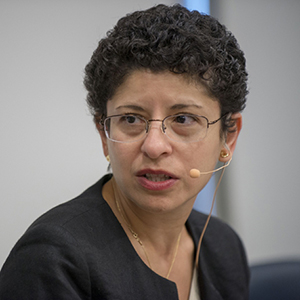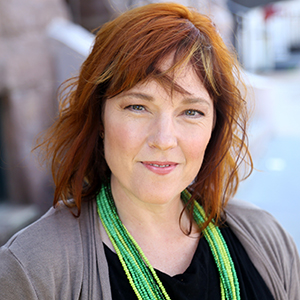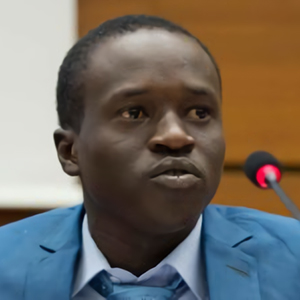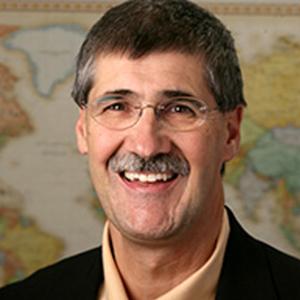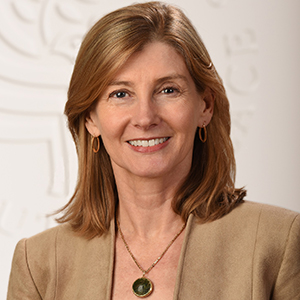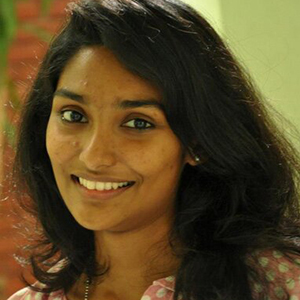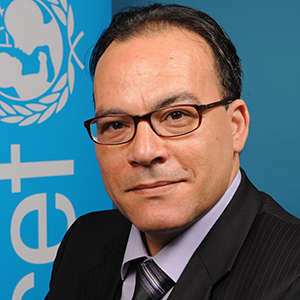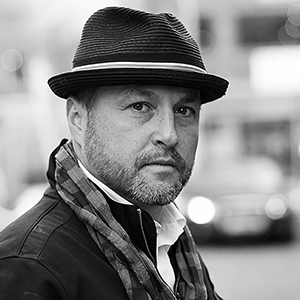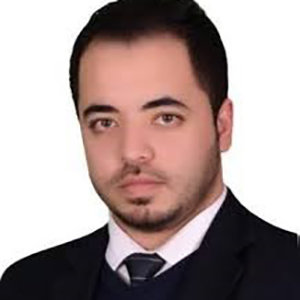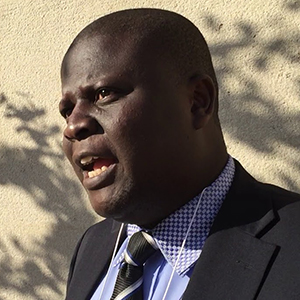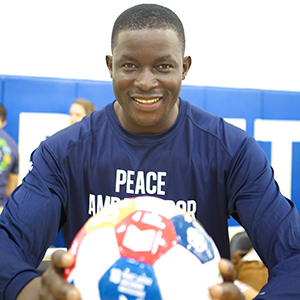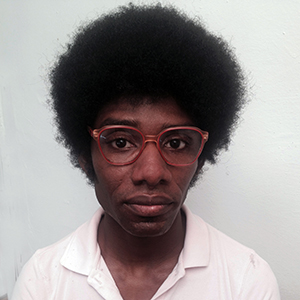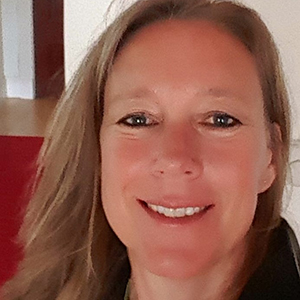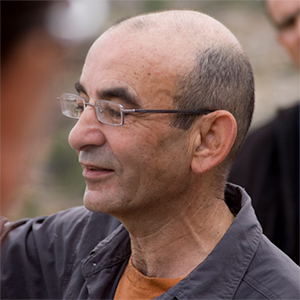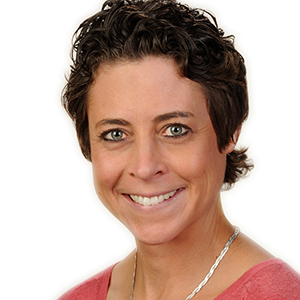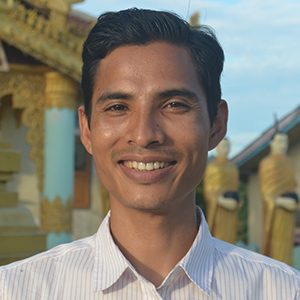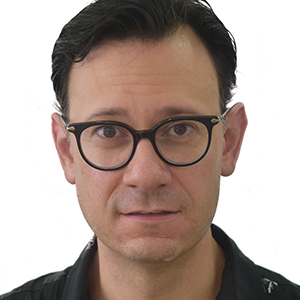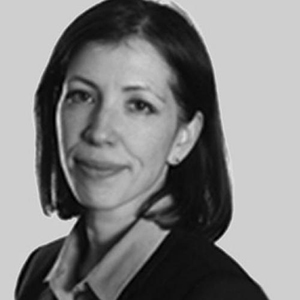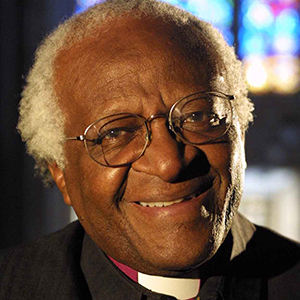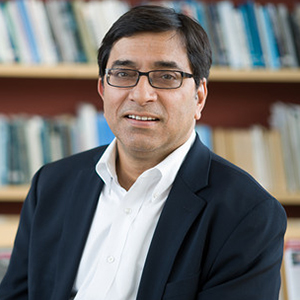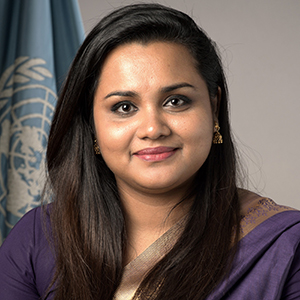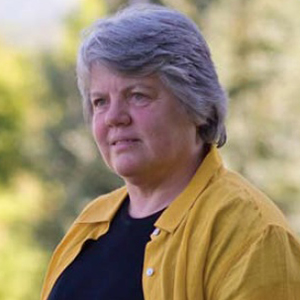Indivisible Authors
Andrés Álvarez Castañeda is Dean, School of Social Sciences at Universidad del Valle de Guatemala. An Anthropologist and Sociologist, he has won Fulbright, Chevening, Organization of American States (OAS), German Academic Exchange Service, US State Department, and Swedish International Development Agency (SIDA) scholarships. One of the youngest Heads of Department and Deans in the History of the Universidad del Valle de Guatemala he has more than 16 years of experience in academic, governmental and non-governmental environments. His research interests include early warning of conflict, social and political conflict prevention, security sector reform, human security, and peace education.
Lana Baydas is a senior fellow with the Center for Strategic & International Studies, Human Rights Initiative. Prior to joining CSIS, she worked as an academic and a practitioner in the fields of human rights, gender equality, development, and international humanitarian law, holding posts with the UN, Crisis Action, the ICRC, and the American University in Cairo. She has worked intensively in the Middle East and North Africa (MENA) region, and co/authored publications on human rights in MENA. She holds a Ph.D. and LL.M. in public international law from the University of Glasgow in Scotland.
Jimmy Carter served as the 39th President of the United States from 1977 to 1981. He was awarded the 2002 Nobel Peace Prize for work to find peaceful solutions to international conflicts, to advance democracy and human rights, and to promote economic and social development.
Aye Sandar Chit, in her late-thirties, is a Burmese Muslim woman born and living in Yangon (also known as Rangoon), Myanmar’s cultural and commercial hub. With a master’s degree in English, she runs a small language school for Myanmar children and is also one of the co-founders of a Muslim women’s group that aims to empower Muslim women to participate in Myanmar’s nation building and increase understanding across ethnic and religious groups. She is involved in different initiatives for conflict management and interfaith peacebuilding with both Muslim and non-Muslim groups in Yangon.
Cindy Corrie is the mother of human rights activist Rachel Corrie who was killed March 16, 2003, in the Gaza Strip. Cindy has made innumerable visits to Israel, the West Bank, and Gaza, including as a co-leader of three Interfaith Peace-Builder delegations. She is President of the Rachel Corrie Foundation for Peace and Justice, and a co-recipient with her husband of a Human Rights Advocates of the Year Award from Seattle University’s Human Rights Network and a Pillar of Peace Award from the Pacific Northwest Region of the American Friends Service Committee. In October 2012, they accepted the Lennon Ono Grant for Peace on behalf of their daughter.
Craig Corrie is the father of Rachel Corrie and a founding board member of the Rachel Corrie Foundation for Peace and Justice. He currently volunteers as Treasurer for RCF. He has given talks on peace and justice throughout North America and other parts of the world. He has accompanied Cindy in her travels to Israel/Palestine and had the honor and privilege to make many friends in the area. In previous lives, Craig was a life insurance actuary in an executive capacity with several insurance companies and spent 1970 as a squad leader with the US army combat engineers in Viet Nam.
Kessy Martine has over eight years of experience in the political and development sectors and now works as a local correspondent for Peace Direct. She is also a free-lance consultant and founder of “URU”, a youth-led local organization working on peacebuilding and development by improving capacities and increasing visibility of youth and youth-led organizations from CAR. In 2014, Kessy Martine completed the Mandela Washington Fellowship for Young African Leaders and has been appointed by Secretary-General Ban Ki-Moon as an expert for the Progress Study on Youth, Peace and Security, as mandated by Security Council resolution 2250 (2015). Kessy Martine holds a bachelor’s degree in Economics and Social and Political Studies and a master’s in Geopolitics, International Security and International Relations.
Scilla Elworthy is a peace builder, and the founder of the Oxford Research Group, a non-governmental organization she set up in 1982 to develop effective dialogue between nuclear weapons policy-makers worldwide and their critics, for which she was nominated three times for the Nobel Peace Prize. She served as its executive director from 1982 until 2003, when she left that role to set up Peace Direct, a charity supporting local peace-builders in conflict areas.
Matilda Flemming leads Search for Common Ground’s European Affairs team, where she ensures strong relationships with the European Union, governments, and other partners. She is a member of the UN Advisory Group of Experts for the Progress Study on Youth, Peace and Security. Before joining Search, Matilda worked for the European Women’s Lobby to strengthen the role of women in decision-making. Before that, Matilda coordinated the United Network of Young Peacebuilders, where she led the civil society campaign for Security Council Resolution 2250 on Youth, Peace and Security – inspired by SCR 1325. She was also the co-chair of the UN Inter-Agency Network on Youth Development’s Working Group on Youth and Peacebuilding and a member of the Council of Europe’s Advisory Council on Youth. Matilda is from Finland and holds a master’s in Development Studies from the International Institute of Social Studies in The Hague.
Diana Francis is a peace campaigner, writer and speaker; also a program associate with Conciliation Resources, convener of the Rethinking Security Council [Ammerdown Group] and a member of the Society of Friends (Quakers). She has many years of international experience in supporting groups of people working nonviolently to address social and political conflict and violence, acting as a facilitator, trainer, mediator and consultant. Currently, her overriding aim is to help promote a movement for change in the way people think about security, starting in the UK, in order to transform international relations policy so that it is no longer driven by the urge to dominate but by the will to cooperate for the common good.
John Freeman is an American writer, poet, and literary critic. He was the editor of Granta, and the former president of the National Book Critics Circle. His writing has appeared internationally including The New York Times, the UK Guardian and the Guardian, and translated into twenty-two languages. His books include The Tyranny of Email, How to Read a Novelist, Tales of Two Cities, Tales of Two Americas: Stories of Inequality in a Divided Nation and Maps, his debut collection of poems. He is editor of the eponymous literary journal, Freeman’s, and the executive editor at Literary Hub. He teaches at the New School and New York University.
Ru Freeman is a Sri Lankan and American writer whose work appears internationally, including in the UK Guardian, the New York Times. She is the author of the novels A Disobedient Girl (2009) and On Sal Mal Lane (2013), a New York Times Editor’s Choice Book, both appearing in translation, and editor of Extraordinary Rendition: American Writers on Palestine (2015). She is a contributing editor of the Asian American Literary Review, and blogs for the Huffington Post on literature and politics. She is the recipient of many awards, including the JH Kafka prize for fiction by an American Woman. She teaches creative writing at Columbia University.
Brian Ganson heads the Africa Centre for Dispute Settlement at the University of Stellenbosch Business School, a platform for research and dialogue at the nexus of business, conflict, and development. His research, teaching, and consulting focus on socio-political risk mitigation, conflict prevention, and third-party roles in post-conflict and other complex environments. He holds a Master of Arts in Law and Diplomacy from the Fletcher School, Tufts University, and a Juris Doctorate from Harvard University. He tells his mother that his peacebuilding work is as mundane as plumbing. He continues to work to make that true. He can be reached at Brian@Ganson.org.
Terri-Ann is a Jamaican regionalist with over 17 years of experience in research and policy development related to Caribbean integration and issues affecting children and youth, including child labour, youth unemployment, juvenile justice and youth participation. As a Research Fellow at the University of the West Indies (UWI) Mona, Jamaica, she chairs the SALISES 50/50 Youth Research Cluster which supports evidence-based youth policies and programmes. She has been youth empowerment advisor to the Caribbean Community, Caribbean Regional Youth Council, the Commonwealth and the United Nations.
Andrei Gomez-Suarez is a widely published researcher. He is Director of the Rodeemos el Diálogo (ReD) Foundation, faculty member at Alberto Merani Institute (Bogotá), and a member of the Exile and Reconciliation Commission (CER). His publication includes Genocide Geopolitics and Transnational Networks (Routledge, 2015) and El Triunfo del No (Icono, 2016). His research on the UP genocide and the Santos-FARC peace talks has appeared in the Journal of Genocide Research, Third World Quarterly, Genocidio, Estudios Políticos, and elsewhere. Andrei lectures internationally on Colombian Politics, International Security, Peace Processes, Post-Conflict Reconstruction, and Transitional Justice.
Saba Ismail is the Executive Director and co-founder of Aware Girls, a youth and women-led organization working to empower young women and promote gender equality in Pakistan. She is also co-founder and Vice Chairperson of the Coalition on Rights and Responsibilities (CRY), a member organization of UNOY Peacebuilders working to develop young people as agents of change within their communities. Saba was listed among the 100 Leading Global Thinkers by Foreign Policy and was a Hufford Youth Fellow with the National Endowment for Democracy (NED) in Washington, where she focused on the role of young women in emerging democracies. She also previously served as a member to the International Steering Group of UNOY Peacebuilders. Saba has a master’s in Biotechnology from the COMSATS Institute of Information Technology, Pakistan.
Dr. Azza Karam serves as the senior advisor on culture at the United Nations Population Fund (UNFPA), where she coordinates UNFPA-wide outreach with faith-based partners and chairs the UN Inter-Agency Task Force on Religion and Development. Before she joined UNFPA, she was the senior policy research advisor at the United Nations Development Program in the Regional Bureau for Arab States.
Kerri Kennedy is the Associate General Secretary for International Programs at the American Friends Service Committee. She has 18 years of experience in over 40 countries, managing international development and emergency response programs in areas of conflict and post conflict environments with a focus on inclusive governance systems, civic education, and advocacy campaigns, gender, and rights-based policy development. She previously served as Executive Director for Women’s Campaign International and manager for Mercy Corps’ Gulf Coast Hurricane Relief and Recovery Program. She has produced documentary films, facilitated strategic plans, conducted country and political assessments, created advocacy and civic education campaigns for public and private sector clients, developed human rights curricula, and trained leaders around the world.
Malual Bol Kiir has been a peace and youth activist advocating for the mutual understanding and peaceful co-existence of all South Sudanese, and refugee and host communities. He recently participated in the Global Refugee Youth Consultations organized by UNHCR in Uganda and has used his network to impact change. Malual is the founder and President of the African Youth Action Network (AYAN) a youth-led initiative in Uganda formed as part of the call to action by youth towards true development, respect for human rights, action for the protection of refugees and lasting solutions for refugees. AYAN brings youth together to enable them to realize their potential in refugee settlements, and help build their self-confidence and sense of fulfillment. Through AYAN, Malual has been able to reach out to over 12,000 war-traumatized youth through providing youth counselling, organizing peace and reconciliatory meetings and working with NGOs to bridge the gap between national and refugee youth.
Jean Paul Lederach – Widely known for his pioneering work in conflict transformation, Lederach is involved in conciliation work in Colombia, the Philippines, and Nepal, and in East and West Africa. He has designed and conducted training programs in 25 countries across five continents. Lederach is Director of the Peace Accords Matrix, the Kroc Institute’s source of comparable data on all comprehensive peace agreements that have been signed since 1989. Lederach is the author of 22 books, including When Blood and Bones Cry Out: Journeys Through the Soundscape of Healing and Reconciliation, and The Moral Imagination: The Art and Soul of Building Peace.
Nancy Lindborg is President of the United States Institute of Peace. Prior to that, she served from 2010 to 2015 as the assistant administrator for the Bureau for Democracy, Conflict and Humanitarian Assistance (DCHA) at USAID, leading USAID teams focused on building resilience and democracy, managing and mitigating conflict and providing urgent humanitarian assistance. She led DCHA teams in response to the ongoing Syria Crisis, the droughts in Sahel and Horn of Africa, the Arab Spring, the Ebola response and numerous other global crises. Having started her career working in Kazakhstan and Nepal, she has She has also served as President of Mercy Corps.
Thevuni Kotigala is a member of the Advisory Group of Experts for the Progress Study on Youth, Peace and Security, mandated by the UNSCR 2250. She is a researcher, peacebuilder, and a trainer in youth empowerment, peacebuilding, and active citizenship. Thevuni is the Co-founder & Director of Open House, which is a human-centric and a value-based organization, which was founded with the ultimate objective of serving the grass-root level communities particularly targeting young men and women. Over the past years, she has directed all her peacebuilding efforts towards, creating communities with resilience and values, in order to initiate civil society agency for equal, non-discriminatory and positive social action.
Khaled Mansour is an independent writer, consultant and a professor of practice on issues of human rights, humanitarian aid, development and communications. He was a journalist for ten years in Egypt, South Africa and the USA. He served for thirteen years in the United Nations including for UNICEF, peacekeeping missions, and the World Food Programme. He led the Egyptian Initiative for Personal Rights in 2013/2015.
Colum McCann is the author of six novels and three collections of stories. Born and raised in Dublin, Ireland, he has been the recipient of many international honors, including the National Book Award, the International Dublin Impac Prize, a Chevalier des Arts et Lettres from the French government, election to the Irish arts academy, several European awards, the 2010 Best Foreign Novel Award in China, and an Oscar nomination. In 2017 he was elected to the American Academy of Arts. His work has been published in over 40 languages. He is the co-founder of the non-profit global story exchange organization, Narrative 4, and teaches at the MFA program in Hunter College.
Hussein Nabil Murtaja became a spokesman for victims of wars and armed conflicts after he was shot in 2006 and later established a youth letters group. The group has implemented many activities for the empowerment of marginalized groups within the society, many of them in cooperation with the United Nation organizations. In 2012, he was involved in the first ever Palestinian Model United Nations that helped enhance the concept of constructive dialogue, respect for others and spread the idea of a society free of violence but prevails by love and respect. He is coordinator for projects at Gaza Group of Culture and Development and a director of the economic empowerment project for poor families in the Gaza Strip. Hussain has also represented Palestine in many international conferences. He has a bachelor’s degree in engineering and a Higher Diploma in applications and Entrepreneurship. Recently, He became a member of youth Advisory Board- UN HABITAT representative Arab region and He have been selected from the Secretary General to be a member of experts of progress study peace , youth and security.
Mr. Victor Ochen is the Founder and Executive Director for African Youth Initiative Network (AYINET). Born in northern Uganda, he spent 21 years as a refugee and transformed his experiences into leading the anti-child soldiers’ recruitment campaign amidst the war in northern Uganda. He is one of the most important figures in Africa in the struggle for human rights and justice. Forbes Magazines named Ochen in 2015 as one of the 10 most powerful men in Africa, while Archbishop Desmond Tutu attested that “my heart swells with joy to see Ochen as one of the new hope for Africa”. He is the first Uganda and the youngest ever African nominated for Nobel Peace Prize 2015.
Khury Petersen-Smith is a geographer and activist who lives in Boston. He completed his PhD in the spring of 2016 at the Clark University Graduate School of Geography. His dissertation, “Pivoting to Asia: Sovereignty, Territory, and Militarization,” focuses on U.S. militarization in the Asia-Pacific region. Khury’s research interests include U.S. empire, territory, place, and resistance. His activism is wide-ranging, but has focused in particular on opposing U.S. empire, resisting racism, and solidarity with Palestine. Khury is the co-author of the 2015 Black Solidarity Statement With Palestine, which was signed by over 1,100 Black activists, artists, and scholars.
Lucy Roberts is a Humanities graduate, with an MA in Development Studies from the University of East Anglia, UK. She has been working in Asia, as well as in the Middle East and Africa, for over 15 years, initially in development and later moving into the peace-building field. She has worked with INGOs, the UN, and for the past seven years, the British and American Quakers, currently holding the position of Regional Director, Asia with American Friends Service Committee, working from Phnom Penh.
Raja Shehadeh is a writer and lawyer. His books include Strangers in the House (2002); When the Bulbul Stopped Singing: Life in Ramallah Under Siege (2003); Palestinian Walks: Notes on a Vanishing Landscape (2007), for which he won the 2008 Orwell Prize for Political Writing; and A Rift in Time, Travels with my Ottoman Uncle (2010). Shehadeh is a founder of the pioneering human rights organization Al Haq, an affiliate of the International Commission of Jurists. His most recent book is Language of Peace, Language of War: Palestine, Israel and the Search for Justice.
Dr. Maria J. Stephan directs the Program on Nonviolent Action at the U.S. Institute of Peace. She was formerly a non-resident senior fellow at the Atlantic Council, where she co-led the Future of Authoritarianism project. Previously, Stephan was lead foreign affairs officer in the U.S. State Department’s Bureau of Conflict and Stabilization Operations (CSO), where she worked on both policy and operations for Afghanistan and Syria engagements. Earlier, Stephan directed policy and research at the International Center on Nonviolent Conflict (ICNC), a private foundation dedicated to developing and disseminating knowledge about nonviolent struggle. She simultaneously taught courses on human rights and civil resistance at Georgetown University’s School of Foreign Service and American University’s School of International Service.
Khine Thurein, in his early-thirties, is an ethnic Rakhine civil society activist from Rakhine state in western Myanmar. He has been a student political leader, taught English to relief workers in disaster-hit areas, worked with political parties ahead of the historic 2015 national elections, mapped changing dynamics in the CSO community in Rakhine, and remains committed to working to overcome the many challenges Myanmar faces.
Jason Tower is a China-based peace-builder and has worked with the American Friends Service Committee since 2008. Over the past decade, Jason has worked on building engagement with business stakeholders on peace and conflict issues and has developed specific expertise working with Chinese companies in this area. Jason has also built close partnerships with civil society across Southeast Asia and Africa to help address concerns around investment. Jason is fluent in Chinese and has lived and worked in China for nearly twenty years. He was trained as a political scientist and has published numerous articles on peace and security issues.
Dr. Maya Tudor’s research investigates the origins of stable, democratic and effective states across the developing world. She is currently writing a book on comparative nationalism and democracy. She was educated at Stanford and Princeton and has held fellowships at Harvard and Oxford. She is Associate Professor of Government and Public Policy at the Blavatnik School of Government at Oxford University and currently a Fellow at the Center for Advanced Study of the Behavioral Sciences at Stanford University.
Archbishop Emeritus Desmond Mpilo Tutu, a Nobel Peace Laureate, is one of the greatest living moral icons of our time who was a key role player in the fight against apartheid in South Africa. He was also the first black South African Archbishop of Cape Town, South Africa and primate of the Anglican Church of South Africa. In 1995 President Nelson Mandela appointed the Archbishop Chairman of the Truth and Reconciliation Commission, a body set up to probe gross human rights violations that occurred under apartheid. In recent years Tutu has turned his attention to a different cause: the campaign against HIV/AIDS. The Archbishop has made appearances around the globe to help raise awareness of the disease and its tragic consequences in human lives and suffering. Though his vigorous advocacy of social justice once rendered him a controversial figure, today Archbishop Tutu is regarded as an elder world statesman with a major role to play in reconciliation, and as a leading moral voice. He has become an icon of hope far beyond the Church and Southern Africa. Scroll through the timeline for more in-depth information about the Archbishop’s life.
Ashutosh Varshney is Sol Goldman Professor of International Studies and the Social Sciences and Professor of Political Science at Brown University, where he also directs the Center for Contemporary South Asia. Previously, he taught at Harvard (1989-98) and the University of Michigan, Ann Arbor (2001-2008). His research and teaching cover three areas: Ethnicity and Nationalism; Political Economy of Development; and South Asian Politics and Political Economy. He served on the former UN Secretary General Kofi Annan’s Millennium Task Force on Poverty (2002-5). He has also served as an adviser to the World Bank, UNDP and the Club of Madrid.
Jayathma Wickramanayake is the UN Secretary General’s Envoy on Youth and will play a critical role in realizing the 2030 UN Agenda on Sustainable Development, which places a significant emphasis on including youth at the center of crisis prevention. She served previously as Secretary to the Secretary General of the Parliament of Sri Lanka, and Youth Lead Negotiator, International Youth Task Force of the World Conference on Youth 2014. She has worked to transform the youth development sector, notably through her advocacy for a cohesive movement for civic and political engagement of young people named “Hashtag Generation.” She is a member of the Sri Lanka Administrative Service.
Sue Williams is an independent consultant who has lived and worked for most of her professional life as a mediator and a trainer in conflict transformation and development.
Li Yingtao is professor, doctoral supervisor in school of International Relations and Diplomacy, BFSU, and deputy executive director of the Center of Gender and Global Studies, BFSU and has been engaged in research on history of international relations, non-traditional security, the UN, gender and international relations and feminism peace studies. Major works include International Politics from Gender Perspective, Feminism Peace Studies, Feminism International Relations, Global Environmental Issues from Gender Perspective and so on, and she mainly teaches history of international relations, art of negotiating study, feminism and international relations. Major awards include “an excellent teacher in Beijing”, “March 8th Red Banner Badge” and she is also the lecturer of an excellent open video course evaluated by Minister of Education–art of negotiating.


